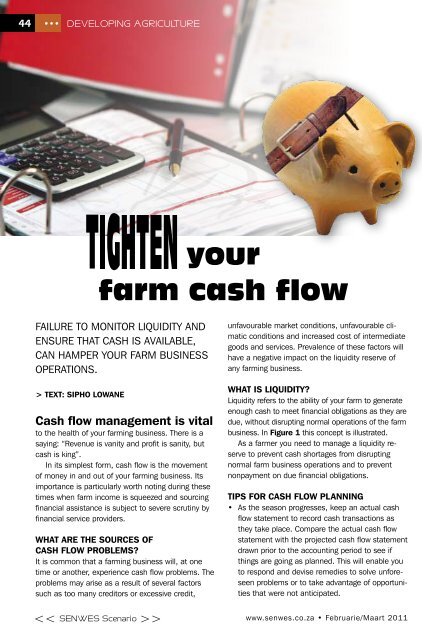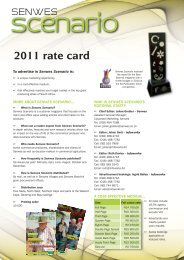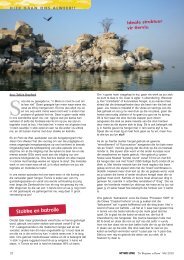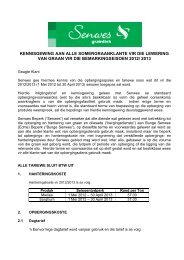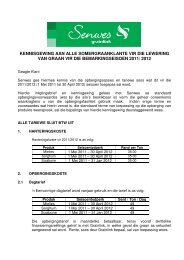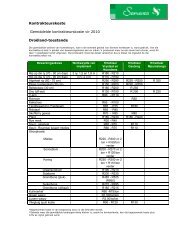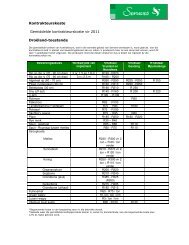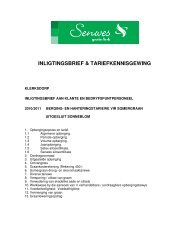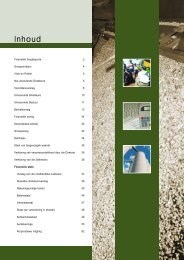Februarie/Maart
Februarie/Maart
Februarie/Maart
You also want an ePaper? Increase the reach of your titles
YUMPU automatically turns print PDFs into web optimized ePapers that Google loves.
44 ••• DEvElopiNG aGricUlTUrE<br />
your<br />
farm cash flow<br />
FaIlURe TO MOnITOR lIqUIDITY anD<br />
enSURe ThaT CaSh IS aVaIlable,<br />
Can haMPeR YOUR FaRM bUSIneSS<br />
OPeRaTIOnS.<br />
> TEXT: SIPho loWAnE<br />
Cash flow management is vital<br />
to the health of your farming business. There is a<br />
saying: “Revenue is vanity and profit is sanity, but<br />
cash is king”.<br />
In its simplest form, cash flow is the movement<br />
of money in and out of your farming business. Its<br />
importance is particularly worth noting during these<br />
times when farm income is squeezed and sourcing<br />
financial assistance is subject to severe scrutiny by<br />
financial service providers.<br />
WhAT ARE ThE SouRCES oF<br />
CASh FloW PRoBlEMS?<br />
It is common that a farming business will, at one<br />
time or another, experience cash flow problems. The<br />
problems may arise as a result of several factors<br />
such as too many creditors or excessive credit,<br />
><br />
unfavourable market conditions, unfavourable climatic<br />
conditions and increased cost of intermediate<br />
goods and services. Prevalence of these factors will<br />
have a negative impact on the liquidity reserve of<br />
any farming business.<br />
WhAT IS lIquIDITy?<br />
liquidity refers to the ability of your farm to generate<br />
enough cash to meet financial obligations as they are<br />
due, without disrupting normal operations of the farm<br />
business. In Figure 1 this concept is illustrated.<br />
as a farmer you need to manage a liquidity reserve<br />
to prevent cash shortages from disrupting<br />
normal farm business operations and to prevent<br />
nonpayment on due financial obligations.<br />
TIPS FoR CASh FloW PlAnnInG<br />
• as the season progresses, keep an actual cash<br />
flow statement to record cash transactions as<br />
they take place. Compare the actual cash flow<br />
statement with the projected cash flow statement<br />
drawn prior to the accounting period to see if<br />
things are going as planned. This will enable you<br />
to respond and devise remedies to solve unforeseen<br />
problems or to take advantage of opportunities<br />
that were not anticipated.<br />
www.senwes.co.za • <strong>Februarie</strong>/<strong>Maart</strong> 2011


